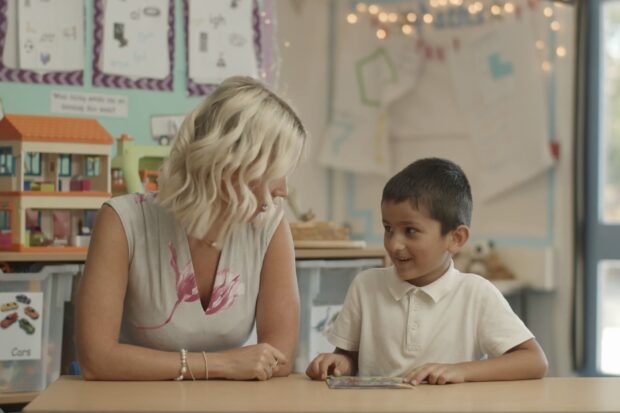
This September, thousands of schools have chosen to pilot the new reception baseline assessment (RBA) for children entering school, ahead of its planned rollout across all schools next year.
The RBA is a short twenty-minute check of a child’s early language, communication, literacy and maths skills which is carried out one-to-one with a teacher or teaching assistant. The results will measure how schools are helping their pupils progress between reception and year 6.
Headteacher of Winton Primary School in Bournemouth, Neil Tarchetti, explains why his school is taking part in the pilot and how they are communicating the changes to parents.
As a primary school headteacher, I was keen to be involved with the assessment changes that will see a statutory reception baseline for all schools in 2020. In our school, one of our teachers joined the working group for developing the assessment so it made sense to sign up to participate in the pilot too. Being part of this pilot presented an opportunity to start to understand what the baseline will mean for our school in more detail.
Change can often cause anxiety so being actively involved in the process felt like the best way for us to boost understanding and confidence amongst our staff and parents and reduce concerns. For many families, their child’s move into school is a daunting one and the idea that their child will be taking part in an assessment on arrival can feel very scary. Participating in the pilot gives us an early opportunity to work with parents to refine the way my school communicates about and delivers the RBA, to make sure it works for all of us.
It is particularly important for me to make sure parents understand how the results of the RBA will be used. For example, there may be misconceptions that the result of the test will be used to group pupils or determine the curriculum a child receives. I am keen to make sure that parents receive the right message and are reassured and confident about their child’s transition to school.
We are doing this by sharing and discussing the outcomes from the RBA with staff and parents, and explaining what they mean for the school and their child. For example, at initial meetings with parents, we will discuss the RBA, and send out a letter explaining the changes. Classroom teachers will then have 1:1 meetings with any parents who have questions about the assessment.
Equally, for teachers the change in how progress is measured for primary schools is a significant one. Whilst it may be seen as positive that all the work schools do will be recognised and measured, there may also be concerns about assessing on entry and how the results will be used. Being involved in the changes from the outset means everyone will understand what is happening and this will help us to reassure and communicate with the whole school community.
We hope that by taking part in the pilot, we can contribute feedback to the development of the assessment, and will be in a better position to carry out the RBA for its scheduled introduction next year. We will be maintaining awareness of how parents respond to the changes, and we will continue our active communications to make sure we implement these changes well for everybody.
_
Information for reception teachers
For more detailed guidance on how the reception baseline assessment will be run, visit the gov.uk site.
Explaining the reception baseline assessment to parents
The Department for Education have produced a range of resources for schools to engage parents around the RBA. This includes an information website and explainer videos (below).
https://www.youtube.com/watch?v=t7CMu_Ef1Zs
3 comments
Comment by Felicia Mizgorski posted on
Many schools in the United States do something similar as children are entering Kindergarten. It gives and opportunity for teachers to get to know the children and their unique starting points. It helps teachers to select instructional strategies and activities to help the entire class and the individual as well. It works well here and hope it will for your students.
Comment by Jan Smyth posted on
Sadly - the test here is not designed to give the teacher any information at all about actual children. In fact schools won't know anything about "how children do" until they are in Y6.
I think it is misleading to suggest that the test will help see "your child's progress" as it is a cohort measure - as stated it doesn't follow the child - so even if many children leave / join the school in the 7 years in between the 2 assessments the cohort measure stands. A much more effective way for practitioners to be able to plan to meet children's needs is to let them interact with children in their play - make no mistake this is only a school accountability measure and means nothing to actual children
Comment by Zoe posted on
In my 20 + years teaching experience, I have always used the children’s first term at school to get to know them whilst playing and observing. It is unsettling and unkind to ignore the rest of the class, to focus on one child, and ask them to count plastic bears, read number sentences and put picture cards in order.
I have trialled the new Pilot assessment in the hope that I can give informed feedback...